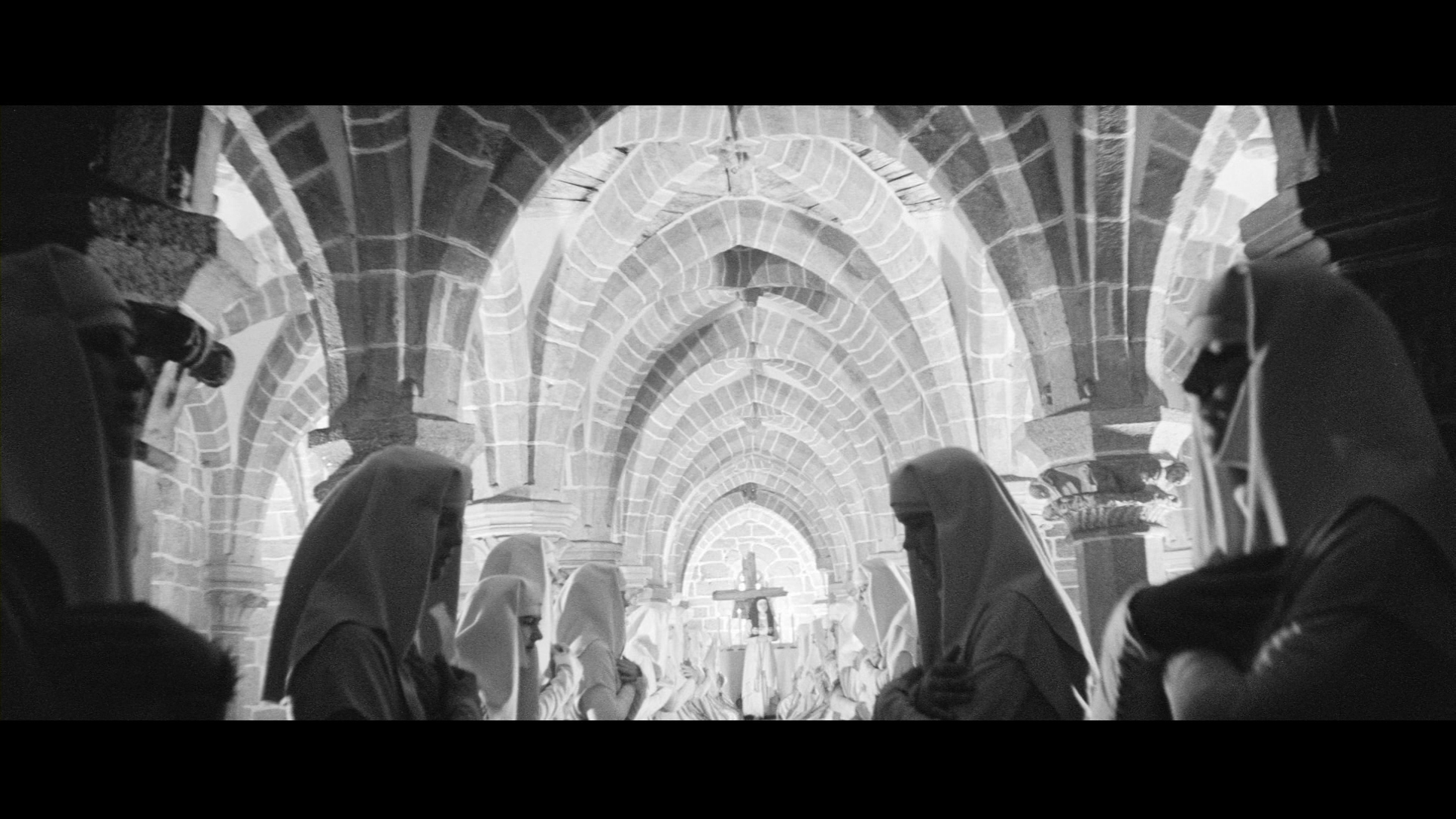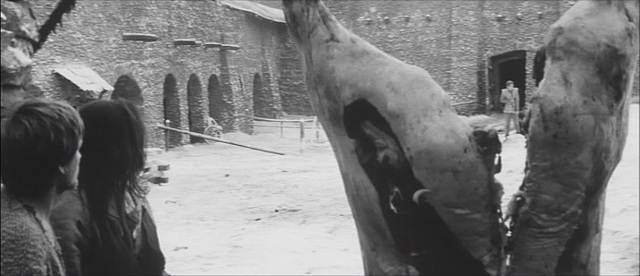16
General Misc. / Writing Men Characters into Epic Fantasy Without Quotas
« on: April 19, 2016, 03:42:03 am »
How can it be done?
CAN it be done?
CAN it be done?
This section allows you to view all posts made by this member. Note that you can only see posts made in areas you currently have access to.
No thought.
The boy extinguished.
Only a place.
This place.
...
I have been legion
...
Now I understand
His intellect flailed, found purchase, and grasped. He could sense wild cause sweep around him in statistical tides. Touch him and leave him untouched.
I am a man. I stand apart from these things.
“What do you know of Shimeh?” Kellhus asked.
The walls shivered beneath a fierce succession of gusts, and the flame twirled with abrupt incandescence. The hanging pelts lightly rocked to and fro. Leweth looked about, his brow furrowed, as though he strained to hear someone.
“It’s a long way off, Kellhus, through dangerous lands.”

In less than two minutes, Vláčil creates a world tensed with potential violence yet interwoven with a harsh natural beauty. This is a world of hunters and victims, of watchers and the watched, of confined hiding places and vast emptiness. The camera self-consciously brings us either too close to things to see clearly or too far from them to make them out. Yet this obscurity never alienates us from this environment but rather sets it vibrating with threat. We are lost in an enigmatic place whose dangers must be figured out if we are to survive. Without setup or explanation, we watch the Kozlík brothers attack a small caravan of German knights. The bandits spy them from the thicket, attack stealthily, and kill mercilessly. The camera peers through branches, creeping along like a predator itself, hiding and observing at once. Action fragments the screen, and the death throes of the prey obscure our view as blood stains the snow. In an image that serves as an emblem for the film, Vláčil shows a motionless wolf pack watching in expectation and then leaping forward to devour the victims left by human violence. Violence comes suddenly but with a wild lyricism, as if fulfilling the desire of a sadistic Nature or God. Few films are as cruel as Marketa Lazarová, and yet it is so vital, as filled with life as it is full of death, evoking sensual pleasure as if to compensate for portraying suffering in all its forms.
http://www.criterion.com/current/posts/2809-cinema-of-the-wolf-the-mystery-of-marketa-lazarova


British scholar Rajendra Chitnis, author of the only major study of Vančura in English, dubbed him “the heart of the Czech avant-garde,” placing him at the “radical center” of Czech literature between the two world wars. He was matchless in his stylistic range: through three short-story cycles, ten novels, five plays, one children’s book, and an unfinished multivolume chronicle of Czech history, Vančura, unlike his peers, embraced the contradictions of pursuing a progressive artistic agenda via mainstream genres. A pivotal example of his independent-mindedness was his withdrawal from the pathbreaking avant-garde art association Devětsil, only four years after he cofounded the group in 1920. Is the idealism of political progress a waste of time? Is modern bourgeois society the only possible reality? Is it we as human beings who fail, or the world we live in? As Chitnis observes, these were constant themes in Vančura’s writing.
...
In the decades following World War I and the Russian Revolution, these were more than just academic matters. The most important debates among intellectuals and artists in 1920s and ’30s Prague revolved around the question of whether it was possible to pursue one’s work without explicitly invoking politics or adopting a political stance. Vančura never embraced or abandoned either point of view, instead remaining committed to the subversive power of language—its capacity to stretch the limits of human resourcefulness, even (or especially) when working within the constraints of form or genre.
http://www.criterion.com/current/posts/2810-marketa-lazarova-vladislav-vancura-and-his-novel
Two men, like a circle and its shadow.
Bakker, R. Scott (2008-09-02). The Warrior Prophet: The Prince of Nothing, Book Two (Kindle Location 8294). Penguin Group. Kindle Edition.
Throughout her entire life she’d looked upon things and people that stood apart. She was Esmenet, and that was her bowl, the Emperor’s silver, the Shriah’s man, the God’s ground, and so on. She stood here, and those things there. No longer. Everything, it seemed, radiated the warmth of his skin. The ground beneath her bare feet. The mat beneath her buttocks. And for a mad instant, she was certain that if she raised her fingers to her cheek, she would feel the soft curls of a flaxen beard, that if she turned to her left, she would see Esmenet hovering motionless over her rice bowl.
Somehow, everything had become here, and everything here had become him.
Kellhus!
Bakker, R. Scott (2008-09-02). The Warrior Prophet: The Prince of Nothing, Book Two (Kindle Locations 7344-7349). Penguin Group. Kindle Edition.
She breathed in. Her heart battered her breast.
He scraped the passage clean!
In a single exhalation, it seemed, a lifetime of condemnation slipped from her, and she felt shriven, truly shriven. One breath and she was absolved! She experienced a kind of lucidity, as though her thoughts had been cleansed like water strained through bright white cloth. She thought she should cry, but the sunlight was too sharp, the air too clear for weeping.
Everything was so certain.
He scraped the passage clean!
Then she thought of Achamian.
Bakker, R. Scott (2008-09-02). The Warrior Prophet: The Prince of Nothing, Book Two (Kindle Locations 7349-7356). Penguin Group. Kindle Edition.
Cnaiür looked down, startled. A young woman, her leg slicked in blood, an infant strapped to her back, clutched his knee, beseeching him in some unknown tongue. He raised his boot to kick her, then unaccountably lowered it. He leaned forward and hoisted her before him onto his saddle. She fairly shrieked tears. He wheeled his black around and spurred after the fleeing camp-followers.She appears moments after he draws his sword to face down innumerable of kianene cavalry who have just recognized him. After he takes her into his saddle the arrow misses. Fate.
He heard an arrow buzz by his ear.
Bakker, R. Scott (2008-09-02). The Warrior Prophet: The Prince of Nothing, Book Two (Kindle Locations 6508-6511). Penguin Group. Kindle Edition.
The woman alternately looked forward, then yanked her head backward to the Kianene— as did, absurdly, her black-haired infant. Strange, Cnaiür thought, the way infants knew when to be calm. Suddenly Fanim horsemen erupted through the northern entrance as well. He swerved to the right, galloped along the airy white tents, searching for a way to barge between. When he saw none, he raced for the corner. More and more Kianene thundered through the eastern entrance, fanning across the field. Those behind pounded nearer. Several more arrows whisked through the air about them. He wheeled his black about, knocked the woman face first onto the dusty turf. The babe finally started screeching. He tossed her a knife— to cut through canvas …
Bakker, R. Scott (2008-09-02). The Warrior Prophet: The Prince of Nothing, Book Two (Kindle Locations 6538-6543). Penguin Group. Kindle Edition.
“Who,” Cnaiür roared, so fiercely all his skin seemed throat, “will murder me?”
A piercing, feminine cry. Cnaiür glanced back, saw the nameless woman swaying at the entrance of the nearest tent. She gripped the knife he’d thrown her, gestured with it for him to follow. For an instant, it seemed he’d always known her, that they’d been lovers for long years. He saw sunlight flash through the far side of the tent where she’d cut open the canvas. Then he glimpsed a shadow from above, heard something not quite …
Several Kianene cried out— a different terror.
Cnaiür thrust his left hand beneath his girdle, clutched tight his father’s Trinket.
For an instant he met the woman’s wide uncomprehending eyes, and over her shoulder, those of her baby boy as well … Somehow he knew that now— that he was a son. He tried to cry out. They became shadows in a cataract of shimmering flame.
Bakker, R. Scott (2008-09-02). The Warrior Prophet: The Prince of Nothing, Book Two (Kindle Locations 6564-6566). Penguin Group. Kindle Edition.